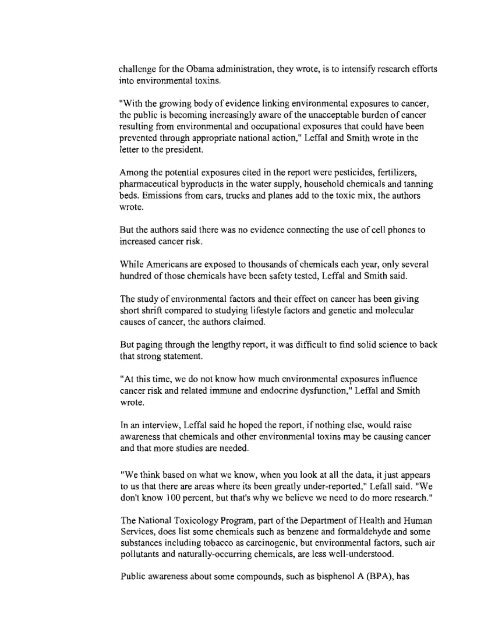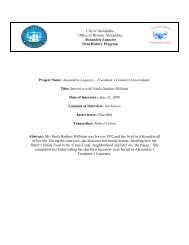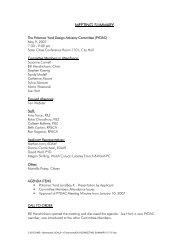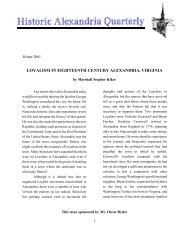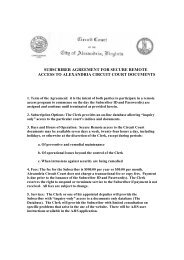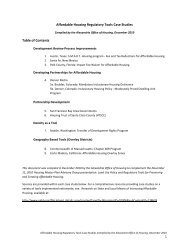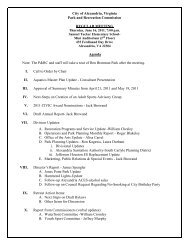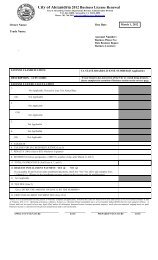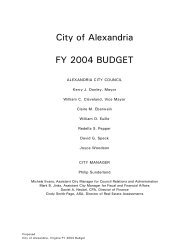COA Contact Us - City of Alexandria
COA Contact Us - City of Alexandria
COA Contact Us - City of Alexandria
Create successful ePaper yourself
Turn your PDF publications into a flip-book with our unique Google optimized e-Paper software.
challenge for the Obama administration, they wrote, is to intensify research efforts<br />
into environmental toxins.<br />
"With the growing body <strong>of</strong> evidence linking environmental exposures to cancer,<br />
the public is becoming increasingly aware <strong>of</strong> the unacceptable burden <strong>of</strong> cancer<br />
resulting from environmental and occupational exposures that could have been<br />
prevented through appropriate national action," Leffal and Smith wrote in the<br />
letter to the president.<br />
Among the potential exposures cited in the report were pesticides, fertilizers,<br />
pharmaceutical byproducts in the water supply, household chemicals and tanning<br />
beds. Emissions from cars, trucks and planes add to the toxic mix, the authors<br />
wrote.<br />
But the authors said there was no evidence connecting the use <strong>of</strong> cell phones to<br />
increased cancer risk.<br />
While Americans are exposed to thousands <strong>of</strong> chemicals each year, only several<br />
hundred <strong>of</strong> those chemicals have been safety tested, Leffal and Smith said.<br />
The study <strong>of</strong> environmental factors and their effect on cancer has been giving<br />
short shrift compared to studying lifestyle factors and genetic and molecular<br />
causes <strong>of</strong> cancer, the authors claimed.<br />
But paging through the lengthy report, it was difficult to find solid science to back<br />
that strong statement.<br />
"At this time, we do not know how much environmental exposures influence<br />
cancer risk and related immune and endocrine dysfunction," Leffal and Smith<br />
wrote.<br />
In an interview, Leffal said he hoped the report, if nothing else, would raise<br />
awareness that chemicals and other environmental toxins may be causing cancer<br />
and that more studies are needed.<br />
"We think based on what we know, when you look at all the data, it just appears<br />
to us that there are areas where its been greatly under-reported," Lefall said. "We<br />
don't know 100 percent, but that's why we believe we need to do more research."<br />
The National Toxicology Program, part <strong>of</strong> the Department <strong>of</strong> Health and Human<br />
Services, does list some chemicals such as benzene and formaldehyde and some<br />
substances including tobacco as carcinogenic, but environmental factors, such air<br />
pollutants and naturally-occurring chemicals, are less well-understood.<br />
Public awareness about some compounds, such as bisphenol A (BPA), has


